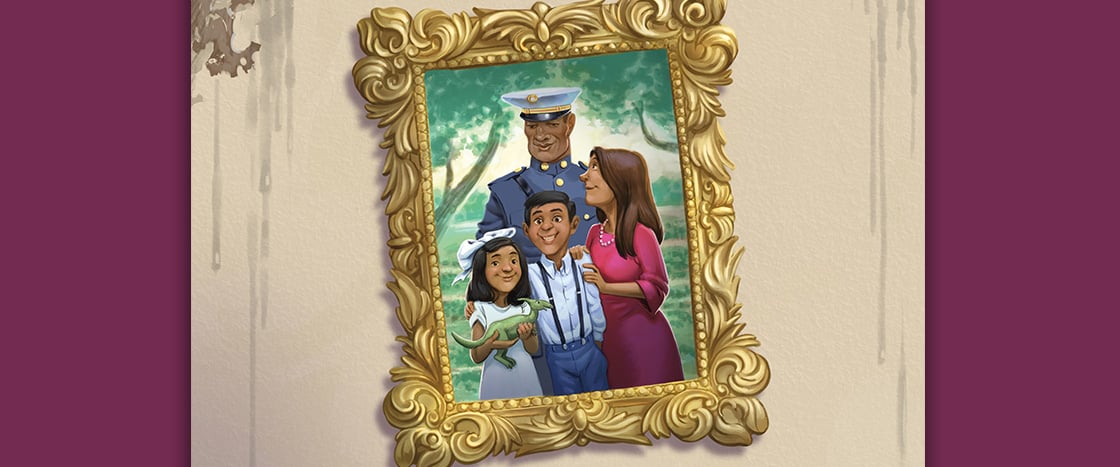Now Max stared at the wave of water pouring out of the bathroom, his heart sinking in his chest. Mom would be home from work in half an hour—just in time for their weekly video chat with Dad.
“I’m sorry,” Lindy sobbed next to him. “I didn’t mean to, I swear!”
“It’s not your fault,” Max said, his mind racing. “But we have to make this water stop. Maybe the neighbors can help.”
He ran to the front porch, the one Mom had loved so much online. The street was empty. But a few houses down, a small figure in a baseball hat pushed a lawn mower.
“Stay there!” he shouted to Lindy.
The person turned out to be a girl about his age. “Hi, new kid,” she said. “I didn’t realize you were my neighbor.”
“You’re in my homeroom,” Max said. He wasn’t used to paying attention to the kids around him at school. There usually wasn’t any point. He struggled for a moment, trying to remember the girl’s name. “Jenny, right? Um, do you know anything about plumbing?”
“Not really,” Jenny said. “But we can call my dad. He’s good at that stuff.”
Max felt a pang. He wished he could call his dad. But that was impossible.
“Can you hurry? I think a pipe burst,” Max said. Jenny followed him down the street to where Lindy sat crying on the porch. When Jenny saw the water gushing out the front door, her eyes widened.
“I don’t know how to make it stop,” Max said desperately.
Jenny pulled out her cell phone. “Dad? It’s kind of an emergency—the neighbors’ house is flooding!”
She kept talking, then listening, and Max could hear a low voice on the other end of the phone. When she hung up, Jenny said, “We need to find the water main and shut it off.”
“The water what?” Max asked. But Jenny was already combing the front lawn, which was more weeds than grass.
“My dad says it’ll be underground,” she called. “Beneath a cover of some kind.”
Lindy ran down the stairs and poked through the tall weeds on the other side of the house. Max searched the yard by the porch.
“I found it!” Lindy shrieked in excitement. Max and Jenny ran over.
“That’s it,” Jenny said. “Take off the cover. Pull the big lever, and it will shut off the water to the whole house.”
The lever was right where Jenny said it would be, covered in rust. Max pulled and pulled, but it didn’t move. Jenny reached in and pulled with him. With an angry squeal, it lifted. The flood of water pouring down the steps finally slowed, then stopped.
“We did it!” Lindy cried. But Max could only stare at the water pooling all over the floorboards.
“Come on. I’ll help you clean up,” Jenny said.


